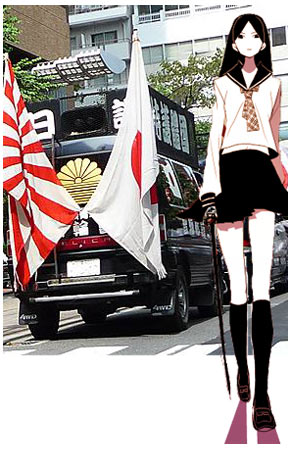There are many benefits to being an American expat in Japan. When I go to concerts I’m usually tall enough to see over the heads of the people in front of me, and fun foods like taiyaki are not hard to find (uguu). The Japanese are pretty flexible about alcohol, and no one gives you a hard time if you drink with co-workers the night before and have a bit of a hangover the next morning. It’s also quite nice to not live in the U.S. when a Presidential election rolls around, and I’m looking forward to a peaceful year without being bombarded by a lot of negative political messages 24 hours a day. That’s not to say Japanese elections are a walk in the park — the primary method of getting people to vote for you involves driving around in a car shouting “I am Yamada! I will work hard for you! Please support me in the upcoming election!” through a loudspeaker from dawn til dusk — but at least that part is over within a week or so.
Politics in Japan are fundamentally different from in the U.S., as they are probably are in every country. While the U.S. has a two-party political system with Republicans and Democrats, Japan has a number of active parties, including the current ruling Democratic Party of Japan, which rode to power on a “manifesto” of promises like making expressways toll-free and paying every family $130 per child per month, most of which have been repealed quietly; the pro-business Liberal Democratic Party, which held power for nearly 50 years in postwar Japan; the New Komeito Party, once the official political arm of the Sokka Gakkai evangelical Buddhist religion; the Japan Communist Party, and so on. To be right-wing in Japanese politics means to be pro-Emperor as well as pro-Yasukuni (the controversial shrine where Japan’s wartime leaders are interred, as well as the souls of all the normal souldiers who faught and died). Right-wingers famously drive around in loudspeaker trucks blasting songs from World War II, and sometimes (awesomely) the theme to Space Battleship Yamato; they also lament Japan’s weakened position in international politics and get very upset over territorial disputes with China, South Korea and Russia. Right-wingers are often anti-Korean, which is amusing since a disproportionately large number of them are “Zainichi” Koreans of North or South descent themselves (Asian politics can be awfully confusing). Left-leaning Japanese dislike the Emperor and the Japanese national anthem Kimigayo, seen as a symbol of Japan’s wartime aggression, and some educators have been fired for refusing to sing the song at official events. Left-wing Japanese are apt to be pro-China and critical of the Japan-U.S. Security Treaty that has bound Japan and the U.S. militarily for the past half-century.

Politics in Japan are very different from in the U.S.














